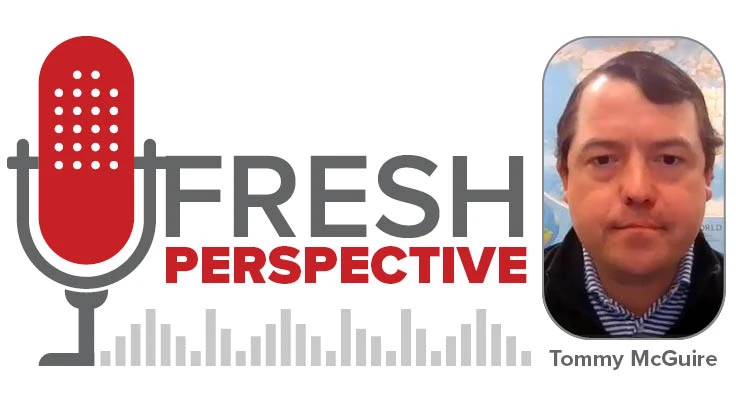
Recycling Today Media Group
Tommy McGuire
President at Echo Environmental

Tommy McGuire started his career in the insurance industry after earning a bachelor’s degree from Texas Christian University. After only a few years of working as an insurance agent, McGuire says he realized he didn’t enjoy the work and needed to make a change.
“I just didn’t have the drive and excitement for insurance,” he says. “I wanted to do something that was a little more obscure and a little bit more niche, as they say, … something that I felt like I can make an impact.”
McGuire connected with a friend who was launching Echo Environmental, an electronics recycling company in Carrollton, Texas, to see if he could help with the startup. He was brought on in a business development role in 2012 before being promoted to president in 2016.
Echo Environmental primarily focused on recycling precious metals and circuit boards when it started a decade ago. McGuire says the company has since grown to recycle a wide variety of electronics as well as to provide information technology asset disposition (ITAD) services through its sister company, ITAD USA.
“It’s been a long evolution, and we’ve learned a lot throughout the process,” he adds. “We’re continuing to grow and find opportunities to take next steps as they present themselves.”
"I learned things can take a long time and you have to be persistent and willing to take ‘no’s’ and not let them get you down.”
In the following interview, McGuire shares more information about the growth of Echo Environmental.
Recycling Today (RT): Before working for Echo Environmental, what lessons did you learn from working in the insurance industry?
Tommy McGuire (TM): I will say the insurance business did give me the ability to cut teeth from a sales perspective and have tough conversations. I was going out, calling on people in their 50s and 60s as a 22-year-old kid who didn’t know much about the policies yet. I was having to deal with a lot of rejections. I learned things can take a long time and you have to be persistent and willing to take “no’s” and not let them get you down.
RT: How has Echo Environmental grown over the past decade?
TM: I think my first sale was 50 pounds of circuit boards down in Austin, Texas. Nowadays, we’re doing hundreds of thousands of pounds of circuit boards. It’s come a long way.
As we went after circuit boards, we came to realize folks had different products—laptops, desktops, all that—so, we kind of had to pivot and start managing those types of products, aggregating entire truckloads of single commodities to create a delta and value from what we could buy to sell or process.
It grew from there. We ended up spinning off and [forming] ITAD USA, which handles traditional IT asset disposition. We’re working with Fortune 500-type companies, helping with ongoing asset needs they have and disposition in an environmentally friendly way while protecting their brands as well as the security of the data on their devices.
We now take everything from solar panels to tools in the semiconductor space to mass spectrometers in the testing and medical space.
RT: What are some goals you have for the company?
TM: I think from the recycling side, Echo is well-positioned in the middle of the country. [Dallas-Fort Worth] is a great logistics hub. I think identifying another location for Echo will come more from acquisition than going to open something up. We’re always looking for opportunities.
On the ITAD side, I want to expand. We’ve got [a presence on the] West Coast and [the] middle of the country; I’d like to have something on the East Coast from a logistics perspective.

Explore the May 2023 Issue
Check out more from this issue and find your next story to read.
Latest from Recycling Today
- Alberta Ag-Plastic pilot program continues, expands with renewed funding
- ReMA urges open intra-North American scrap trade
- Axium awarded by regional organization
- China to introduce steel export quotas
- Thyssenkrupp idles capacity in Europe
- Phoenix Technologies closes Ohio rPET facility
- EPA selects 2 governments in Pennsylvania to receive recycling, waste grants
- NWRA Florida Chapter announces 2025 Legislative Champion Awards





